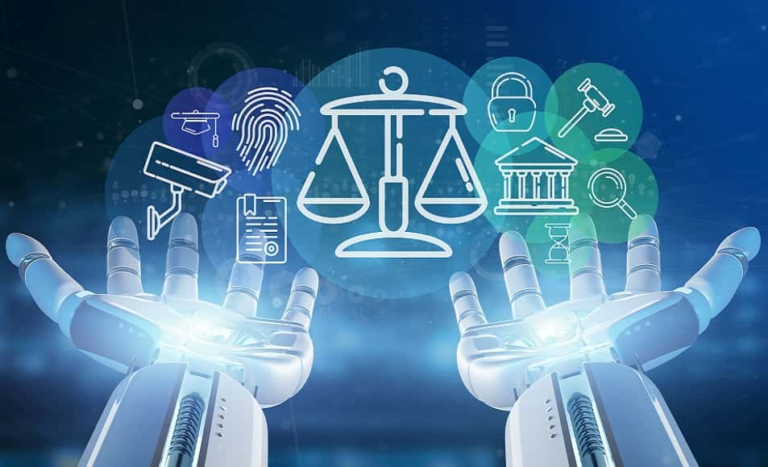Quevedo & Ponce - Noticias Legales
Ecuador and the New Law on Intelligence: Toward a Safer or More Surveilled State?
- June 19th, 2025
- Quevedo & Ponce
In the context of growing security challenges, Ecuador has taken a decisive step by enacting the new Organic Law on Intelligence, whose stated aim is to strengthen the State’s capacity to confront organized crime and threats to national sovereignty. However, the legal framework adopted raises serious concerns from a constitutional and human rights perspective, particularly due to the broad powers granted to the country’s intelligence bodies.
An Institutional Framework Still Under Construction
Unlike countries with long-standing strategic intelligence traditions—such as the United States, the United Kingdom, or Israel—Ecuador does not have a fully consolidated intelligence apparatus. The Strategic Intelligence Center (CIES), currently the leading authority in the system, has undergone multiple reforms since its establishment in 2009 and has been questioned for its lack of transparency and the limited technical experience of its leadership.
The new law assigns CIES the responsibility of coordinating the various intelligence subsystems, issuing internal regulations, maintaining international relations in intelligence matters, and designing the National Intelligence Plan. However, its director, appointed directly by the President of the Republic, holds a concentration of powers that lacks effective checks and balances, particularly within a structure where secrecy is the norm.
Access to Private Data Without Judicial Oversight: A Threat to Privacy?
One of the most controversial aspects of the legislation is the ability of intelligence officials to request information from telecommunications companies or any natural or legal person without prior judicial authorization. This power includes access to real-time and historical data, geolocation, digital connections, terminals, and even computer and digital information.
From a legal standpoint, such unrestricted access clashes with fundamental rights enshrined in Ecuador’s Constitution, such as the right to privacy, the protection of personal data, and due process. Although the law explicitly prohibits the use of these powers for discriminatory or political purposes, the absence of robust oversight mechanisms creates a real risk of abuse.
Information Classification Regime
Another key feature of the new law is its system for classifying intelligence information. Information may be labeled as reserved, secret, or top secret, depending on the potential damage its disclosure could cause. Although the law provides for automatic declassification after five or fifteen years—depending on the level—it also allows for indefinite reclassification, potentially turning secrecy into a permanent mechanism for withholding information.
Additionally, the law retains a controversial provision: so-called “special expenses”, which are subject solely to auditing by the Office of the Comptroller General. As stipulated, all related documentation will be incinerated after use, with only summary records preserved.
A Broad but Asymmetrical Institutional Network
The National Intelligence System comprises a central authority (CIES) and seven specialized subsystems, including those of the Armed Forces, National Police, Presidential Military House, UAFE (Financial Analysis Unit), SRI (Tax Authority), SENAE (Customs), and SNAI (Prison System). Each has distinct responsibilities, although only three subsystems—defense, police, and presidential security—are legally authorized to carry out counterintelligence operations.
The CIES is also responsible for assessing the qualifications and suitability of directors and officials across these subsystems, further centralizing decision-making power within a body that operates with minimal external oversight. Intelligence operations may take place at various levels (tactical, strategic, prospective, among others), but high-level operations require express approval from the President of the Republic.
A Legal Tool That Could Erode Constitutional Guarantees
The Organic Law on Intelligence is presented as an institutional response to Ecuador’s increasing violence and criminality. However, its implementation introduces significant legal risks. The ability to access private information without judicial review, the lack of transparency, and the concentration of powers in a politically appointed authority raise tensions with democratic principles and the protection of fundamental rights.
While the law could enhance the State’s operational capacity against complex threats, this would only be legitimate if accompanied by independent oversight, transparent resource management, and strict adherence to the principles of legality and proportionality. Absent these safeguards, the law risks becoming yet another tool for surveillance and authoritarian control.
At Quevedo & Ponce, we are committed to defend the rights of all citizens. Contact us for legal guidance on this important legal precedent and its implications in the labor field.
Más Artículos
Mergers & Acquisitions: How to Prevent Your Business from Incurring in Sanctionable Economic Concentrations under Ecuadorian Law
Quevedo & Ponce – Legal News Mergers & Acquisitions: How to Prevent Your Business from Incurring in Sanctionable Economic Concentrations under Ecuadorian Law When discussing mergers and acquisitions (M&A), we refer to a series of legal and non-legal acts, including economic, financial, and accounting actions. Whether a company acquires the rights of another, either fully […]
Mergers & Acquisitions: Cómo prevenir que su negocio incurra en concentraciones económicas sancionables bajo la ley ecuatoriana
Dentro de la actividad empresarial se presentan actos como los destinados a la fusión o adquisición de derechos societarios entre dos compañías distintas. La falta de asesoramiento profesional puede llevar a la imposición de sanciones por la autoridad estatal competente, por lo que la observancia del Derecho resulta fundamental al momento de iniciar un proceso de M&A.
La propiedad intelectual en Ecuador: Protección para innovadores y creadores
La propiedad intelectual en Ecuador protege las creaciones del intelecto humano, como obras literarias, artísticas, invenciones y diseños industriales; impulsando la innovación y el desarrollo económico. El Servicio Nacional de Derechos Intelectuales (SENADI) supervisa esta protección en las áreas de propiedad industrial, derechos de autor y obtenciones vegetales, garantizando la seguridad legal de las creaciones.
Boletín Informativo: Prórrogas en los plazos fijados por la SCVS
La Superintendencia de Compañías, Valores y Seguros mediante resolución No. SCVS-INPAI-2024-00008987, dispone la prórroga en el plazo para la presentación de documentación requerida por la Ley de Compañías.
Derechos de autor e inteligencia artificial: implicaciones éticas y legales
La interacción entre los derechos de autor y la inteligencia artificial plantea desafíos éticos y legales que deben abordarse cuidadosamente. Es necesario encontrar un equilibrio entre proteger la creatividad humana, fomentar la innovación tecnológica y garantizar el respeto por los derechos de autor en el uso de la IA en la creación de contenido.






